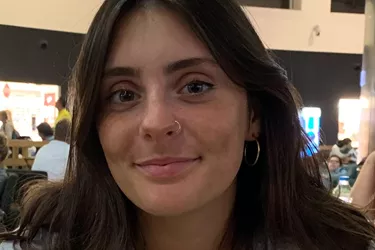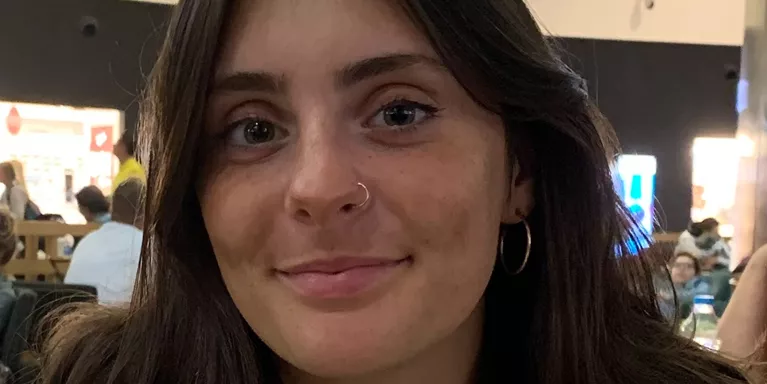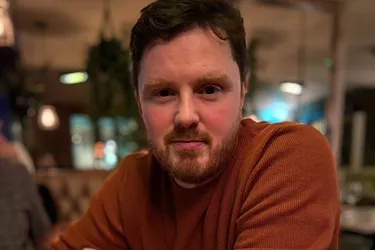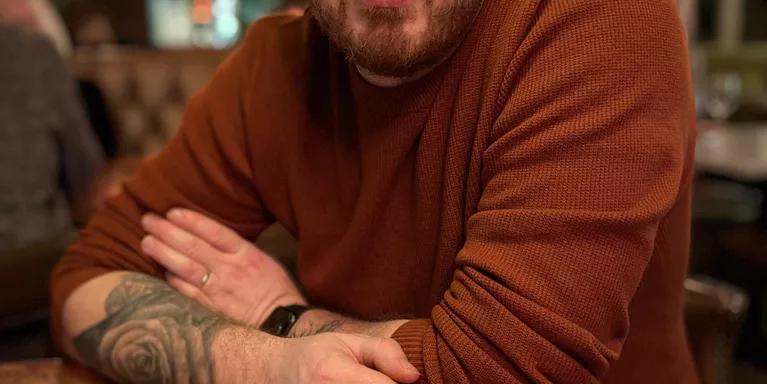Navigating the mental health system as a young person
Imogen, from Cardiff, explains how the lack of effective mental health support she was offered left her feeling isolated and confused.
The simplest way I can describe my depression is not wanting to be anywhere, not wanting to do anything. It’s that constant feeling of despair and hopelessness, and not knowing how to make the situation better.
It’s going out and not wanting to drink and socialise, but at the same time not wanting to go home either. It’s a very dark and isolating feeling, which is much more than just feeling sad.
“People make a lot of assumptions”
Depression, and other mental health conditions can manifest in different ways, and people make a lot of assumptions about what a depressed person should look like.
For example, as somebody who is outgoing, chatty, and confident, I’ve had counsellors say that I “don’t seem depressed” or that I don’t have “a reason” to be depressed. Depression can be linked to a reason, but this isn’t always the case.
Sometimes, people will give me examples of things that I’ve achieved or things that I enjoy as reasons why I shouldn’t be depressed, or suggest that these things mean I “love life” and therefore don’t really want to end it.
These kinds of comments can make me feel even more isolated and confused, which puts me off seeking help. In the past, this has caused me to feel even more erratic, and I’ve even experienced instances of disassociating – as if I’m looking at myself from the outside.
Accessing support
I’ve been struggling with my mental health since I was 19, and I’m 23 now. During this time, I’ve seen many counsellors and accessed multiple support services – some have been positive experiences, whereas others have been less so.
The services I’ve accessed have been free - private counselling just isn’t an option for me as somebody who is a student and from a low-income home.
Everyone knows how stretched the NHS is, so the long waiting list came as no surprise to me.
However, during this time, I was mistakenly taken off the waiting list, and I only found out that I’d been taken off when I rang up to see whether I could get an emergency appointment because I was so desperate for help. It makes me think of the number of letters that get lost in the post and never end up where they’re meant to.
Another issue I’ve had is the limited number of NHS counselling sessions available. It takes time to get used to your counsellor, and if you’re only given four or eight sessions, it becomes impossible to unpack your issues during this time.
The restricted number of sessions also means there’s certain problems you can’t delve into because they’re far too traumatic and you know you’ll need more sessions to properly get to grips with this. All of this has a knock-on effect on how much you get out of your counselling sessions.
On the other hand, when I’ve accessed the university support services, I’ve found that these are too often tailored towards university-related issues, and my depression and anxiety existed long before I attended university. There is a misconception that all young people are depressed because of university work and social media, but this simply isn’t the case.
“Doctors are too keen to hand out anti-depressants”
About a year after first telling my doctor about my depression, I started anti-depressants, and I’m still on these now.
I think that doctors are too keen to hand out anti-depressants, and while the meds have been a big help to me personally, I have so many questions that have never been answered.
Anti-depressants are designed to treat a chemical ‘imbalance’ in the brain, but not everyone needs them. There’s an endless list of side effects associated with such medications – including suicidal feelings – and quite often they can make you feel worse before they enable you to feel better.
I feel like there needs to be more support available for anyone who is put on anti-depressants. As well as standard medication reviews, I strongly believe that everyone who is on them should also receive counselling. Anti-depressants alone are not the answer.
My mental health “wasn’t severe enough”
At my lowest points I’ve felt extremely erratic and suicidal, yet the crisis intervention and support I crave just hasn’t been there.
One time when I felt unsafe, I rang my GP and asked for a mental health appointment. The mental health nurse who rang me back was patronising and unhelpful.
When I asked what help was available, she said it wasn’t a severe enough case because even though I felt like ending my life, I hadn’t made concrete plans to do so.
“That support just isn’t there”
It's instances like this that have made me feel like there’s no support there for people like me – for those of us in that limbo or grey area where you feel unsafe but haven’t acted on your suicidal feelings yet.
It made me feel like I was being led on this wild goose chase around a never-ending maze – they lead you into this room where you think you’re getting help, but every time you open the door it's just an empty room and you find yourself back where you started.
The number of suicides at the university I attend in the last few years has really upset me. It makes me wonder whether they could have been prevented, had the right support structures been put in place.
Right now, I’d say that support just isn’t there, and this worries me, because so many young people are struggling.

See what we're campaigning on

Our campaigns
We'll fight your corner. We believe everyone with a mental health problem should be able to access excellent care and services. We also believe you should be treated fairly, positively and with respect.
Share your story with others
Blogs and stories can show that people with mental health problems are cared about, understood and listened to. We can use it to challenge the status quo and change attitudes.















